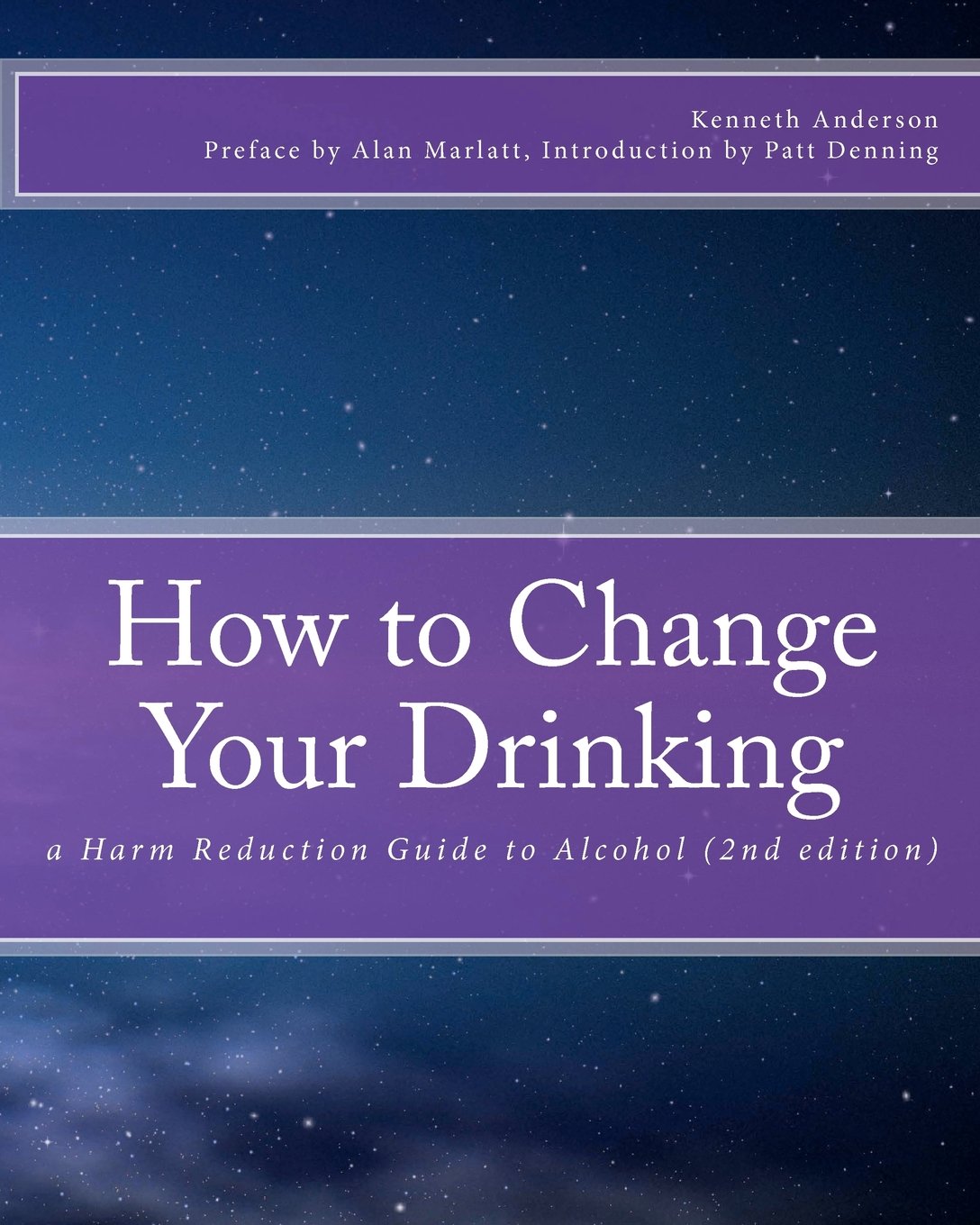
How to Change Your Drinking: a Harm Reduction Guide to Alcohol (Second Edition)
This book is the first comprehensive compilation of harm reduction strategies aimed specifically at people who drink alcohol. Whether your goal is safer drinking, reduced drinking, or quitting alcohol altogether, this is the book for you. It contains a large and detailed selection of harm reduction tools and strategies which you can choose from to build your own individualized alcohol harm reduction program. There are many practical exercises to help people change their behaviors, including risk-ranking worksheets, drinking charts, goal choice worksheets, and many more. There are also innumerable practical tips from folks who “have been there” and have turned their drinking habits around for the better. This book exemplifies the harm reduction principles of “meeting people where they are at” and encouraging people to change in ways which they choose for themselves. This book can either be used as a self-help manual for people working on their own or by people who are participating in a harm reduction support group.
Editorial Reviews
Substance misuse is one of the most common and widely discussed topics within the mental health community, as both clients and professionals debate the most effective ways to deal with addictions and their causes.
In the past, treatment might typically have involved a focus on abstinence as the ultimate goal, through zero-tolerance groups such as Alcoholics Anonymous, or a 12-step program, where clients would be rewarded only for complete sobriety and nothing less.
This has slowly changed over the past decade, though, through the realization that complete abstinence simply wasn’t a realistic or achievable goal for some, and that such a harsh insistence on withdrawal simply wasn’t working. In fact, it is estimated that 60 to 95 percent of clients who enter 12-step programs either drop out or otherwise fail to maintain abstinence from alcohol, and the NIAAA’s statistics suggest that only 7 percent of people who suffer from an alcohol use disorder will typically seek treatment within any given year.
As a result the treatment focus has shifted from simple cold turkey toward an overall emphasis on healthier and safer habits, and lowering risks. This has seen an emerging popularity for modalities such as motivational interviewing, where both the pros and cons of sustaining the negative behaviors are acknowledged. The client is then free to decide how, and at what pace, to proceed.
The HAMS group takes a similar “baby steps” approach. HAMS — the acronym stands for Harm reduction, Alcohol abstinence, and Moderation Support — describes itself as “a free of charge, lay-led support and informational group for people who want to change their drinking for the better.” Founder and CEO Kenneth Anderson is himself a former problem drinker.
In this book, How To Change Your Drinking: A Harm Reduction Guide To Alcohol, Anderson presents a comprehensive summary of the harm reduction approach to drug and alcohol problems, suggesting it could “either be used as a self-help manual for people working on their own or by people who are participating in a harm reduction support group.”
The book begins by introducing the underlying theories of harm reduction, and is written in a nonjudgmental tone that will be reassuring to most readers:
“Some folks today want to say that everything fun is an addiction and that everyone had better spend their lives in 12 step meetings talking about their ‘Higher Power’ and holding hands and saying the Lord’s Prayer instead of ever doing anything fun. We beg to differ with these people. Prohibition does not work because there is nothing essentially evil, sinful, or diseased about having fun. There is nothing evil, sinful or diseased about drinking alcohol moderately, and for that matter there is nothing sinful, evil or diseased about engaging in recreational intoxication either.
There is not some specific magical quantity which we can say is too much alcohol – free individuals have the right to make up their own minds about how much they believe is too much for them personally. Occasional intoxication is not a symptom of a disease; it is a choice.”
It is this focus on individual choice and empowerment which personifies this book and differentiates it from much of the rest of the substance misuse canon. Instead of focusing on problematic labels or clinical diagnosis as a means of demanding perfect abstinence, the author leads the reader on a step-by-step journey toward deciding what their own goals should be, and offers advice and support on the healthiest ways to achieve and maintain them. There is even a short section titled “Ken’s Story,” where Anderson talks about his own previous drinking problems and near-death experiences in AA. Those led to his resolution to “find a better way” and start the HAMS network.
The opening chapters might seem familiar to many mental health professionals, as Anderson suggests that each reader completes a Cost Benefit Analysis exercise, similar to
About the Author(s)
Kenneth Anderson
Kenneth Anderson is the founder and CEO of The HAMS Harm Reduction Network. HAMS is the first world-wide, harm reduction-based support group specifically for people who drink alcohol. HAMS is lay-led and free-of-charge. Mr. Anderson has worked in the field...
Read MoreBack
